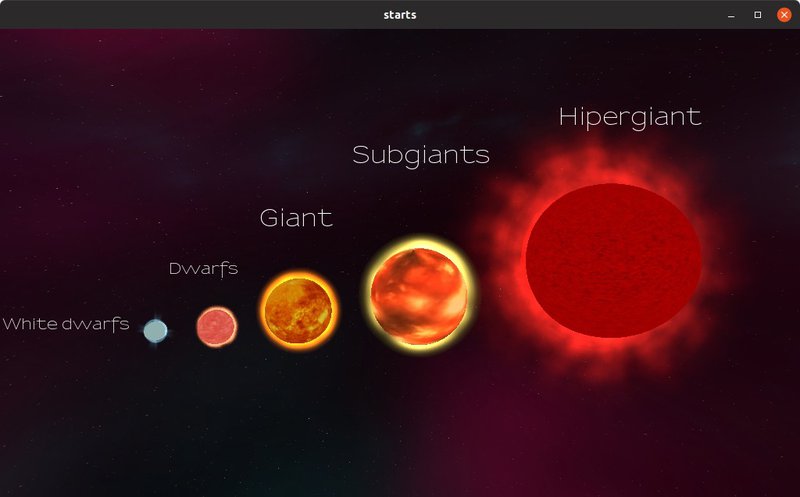Cosmic Gnomes| Build a Planet
Project Details
Awards & Nominations
Cosmic Gnomes has received the following awards and nominations. Way to go!
The Challenge | Build a Planet
Wandering Stars
Wandering Stars is an educational planeatry system simulation videogame.

Background
As a software developer team, video games were a common thing in all of us, we wanted to create a fun and user-friendly experience whilst having a physics and mathematical background.
Space can be a terrifying subject, a lot of physics and mathematics involved really build a wall between new learners and experts, we wanted to break that wall, with story-telling techniques and a friendly user experience, players can learn how a planetary system is created while having fun!
What it does
While playing Wandering Stars, theory of stellar and planetary formation is shown while players modify values like (radius, mass, temperature, luminosity) to create their own stars and planets. We believe that having fun is the best way to learn something!
Many team-members have no previous experience making videogames, and the ones that did only knew Unity. We challenged ourselves to use an unknown game engine and suffered/learnt from it.
What really makes our solution stands out are three main factors: UX, Scalability and Open Source
User Experience (UX)
Wandering Stars has a narrative, each action of the player is carefully guided by text and a soothing background music and short explanations of every step.
In Wandering Stars, the player is empowered with the ability to decide crucial values of his creations.
Scalability
Wandering Stars is built in a game engine that supports object-oriented programming, every object created is easily manipulated and copied through other instances of the game. It's Scalability is colossal, just by creating a functionality it can be replicated furthermore creating infinite possibilitiesOpen Source
We love Open Source!Every team-member uses Linux distributions and decided to use Godot as its an open source engine. With no licenses restricting its distribution, our solution can be easily exported to many platforms with 0 costs.
NASA Resources
https://openexpoeurope.com/
https://github.com/OpenExoplanetCatalogue/open_exo...
https://www.britannica.com/science/stellar-classif...
https://en.wikipedia.org/wiki/Stellar_classificati...
PLANETARY RADII ACROSS FIVE ORDERS OF MAGNITUDE IN MASS AND STELLAR INSOLATION
APPLICATION TO TRANSITS J. J. Fortney, 1,2,3 M. S. Marley, 1 and J. W. Barnes 4 2007.
Harvard classification system.
Harvard Stellar classification by Annie Cannon
Future Plans
Animations
Stars and planet need animated movement! We plan to implement movement in scene objects, also animations for camera and textures in stars/planets.
UI Re-Design
Godot gave us a hard time with UI...
So we want our payback. We plan to re-design our whole UI with legible fonts, better spacing, color palette and Sounds.
ADD content
More planets, more data, more science!
Team
(As a fact, we're students form Hoblerton School)
Camilo Villegas - Director, game designer, programming generalist
Joshua Hernández - Mechanic programmer
Johnatan Cardenas - Data Analyst and UI programmer
Juan Diego Arango - Data analyst
Fidel Caicedo - Data analyst
Guillermo Caicedo - 3D and effects artist
Built With
Godot Game Engine
Visual Studio Code
Python, GDScript
Json
Github
Laptops (Linux distributions)
Try it out
https://github.com/guxal/nasaspace_cosmic_gnomes.g...
Tags
#python, #science, #solar system, #exoplanet, #godot, #videogames, #udea